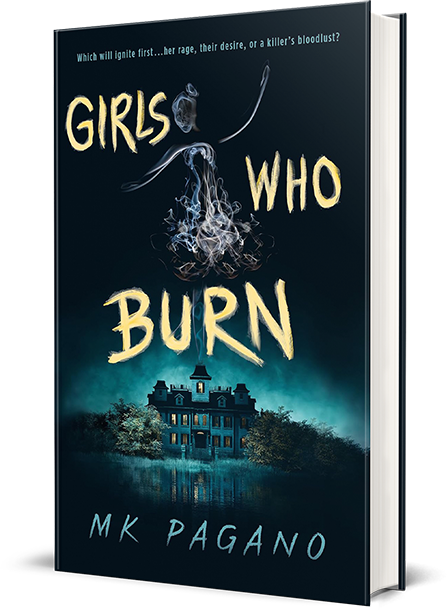On Word Count (or Cutting out the Dog)

(Image found here)
I finished what I thought was the final draft of the novel I’ve been working on for the past five years this past Christmas Eve, at my parents’ house, in the morning over coffee next to the Christmas Tree.
I remember sitting back, stunned. Am I done revising? Is this really it?
Well, no.
I sent that draft out to Beta Reader #1, my friend Vickie (who is the closest person to myself that I could think of in terms of taste in books). She came up with some helpful suggestions (as well as located all the typos I swore couldn’t possibly be in there as I’d been through it so many times). Then I sent it out to Beta Readers 2-7, who came back with more helpful tidbits.
However, my readers’ feedback was just that: tidbits. No major changes. If you’ll forgive me for tooting my own horn for a moment, the unanimous opinion of my beta readers was: “This was a great book. I couldn’t put it down.”
Which made me ecstatic, of course.
Even after I grilled them: was this character believable? this relationship? could you picture the setting? did the mystery end satisfactorily? The answers were all, “Yes, yes, yes, yes. We told you it was good; now publish it already!”
But I had one last question: Is it too long? Do I need to cut it down?
The final draft, after all the revisions, clocked in at 109,231 words. Longer than a recommended debut novel. Much longer than a recommended debut YA novel (which should be closer to 80,000).
The answer from my beta readers? No. It was perfect.
So I didn’t cut it down.
At first.
Then came the agent research. The query writing. The emailing. The waiting with baited breath.
And the rejection emails.
To date I’ve received three. They were form-letters, from agents who only requested a query letter—no sample of the novel.
But you didn’t even read the book! I wanted to shout. It’s good, I swear!
So I decided my query needed help. I perused the internet for advice, eventually landing on some blogs that critique queries, publicly and for free. I submitted to several; one got back to me.
Mindy McGinnis published my query in her Saturday Slash a few weeks ago. Everything she said was so incredibly helpful! But the part that really stuck with me?
I’m not positive you’re illustrating that there’s enough of a story here to merit such a high word count. Anything over 100k for a debut is a risk. Try to pare down.
It’s advice I had read and ignored countless times on other blogs. Because my story was good! Not too long! Seven people say so!
But the reality is I need agents to believe it’s good. And if the query letter is all they see, I can’t have any potential red flags.
Thus began the absolutely grueling process of cutting down my “perfect” manuscript.
I made a list of every scene and the purpose for each one. I found one that was totally unnecessary, one that was repetitive, and one that could be pared down to a paragraph. 3,000 words gone! I was astounded.
I went through every other scene with a fine-toothed comb with the mantra Show don’t tell ticking in my head like a metronome. (A revelation I had: any sentence that starts with the word clearly or obviously can go. If it’s really clear or obvious, why do you need to say it?)
I made another 2k in word cuts. Miraculous!
I deleted every adverb I could bear to part with. I deleted unnecessary dialogue tags. I took out extra instances of my characters looking up, looking down, looking each other in the eye, smiling, sighing, nodding, frowning.
I was down to 102,540 words. I couldn’t believe it.
But that still wasn’t enough.
I cut out my prologue, then put it back in (my beta readers loved the prologue, and it was necessary to set the mystery tone. More on prologues later).
And then I did something I truly hated: I cut out the dog.
In my story, this adorable little dog named Lou-Lou follows my main character around, comforting her when she’s sad, sleeping at the foot of her bed, barking when she’s in trouble. In early drafts of the story, I had something bad happen to the dog near the end, upping the stakes. But then I chickened out; I couldn’t hurt Lou-Lou! (People getting hurt? yes. The dog? no.)
But the dog was only a few sentences per scene. Surely cutting her out couldn’t make that much of a difference? And she adds something to the story, doesn’t she?
Turns out, my story is pretty much exactly the same without Lou-Lou. And cutting her out got my story under 100,000 words. And you know what? My “perfect” story is now tighter—and dare I say it, better.
My manuscript is now 99,459 words. I revised my query and sent it out to a few more agents. AND ONE WROTE BACK AND REQUESTED THE FULL MANUSCRIPT.
I like to picture Lou-Lou wandering around off-screen in my novel. Her barks can be roughly translated to: “Don’t worry about me! I’m fine here! And I’m so proud of you!”
Other people call editing Killing Your Darlings. I call it: Cutting out the Dog.
Photo by Joe Caione on Unsplash


It’s amazing how much you can cut out. At the same time, it’s a really heartbreaking process, at least for me. I have the opposite problem with a middle grade fantasy I’m writing. It’s pretty close to done, I think. But it’s only ~17K words, and typically agents look for a minimum of 20K. So, I don’t really know what to do, because I feel like it’s already reached its natural length. Maybe I’ll just query as is and see what happens before I worry too much.
Haha–I have never had that problem! I’m verbose. However, trends seem to be saying that people’s attention spans are getting shorter and shorter, so maybe submit it as is and see how it goes!
[…] really hard to once more take a scalpel (or a circular saw) to my “perfect” novel. Killing my darlings really does break my heart. To be honest, I don’t actually “kill” my darlings. I cut and paste them into […]
[…] Kill your darlings. It’s the only way to get good enough. […]
[…] is all easier said than done–believe me, I know. But it will make your writing so much tighter and therefore, […]
[…] what I needed was to work on my first writerly love, the first novel I ever wrote, the YA mystery. It needs work, and it needs some outside help. But I can’t decide if I […]